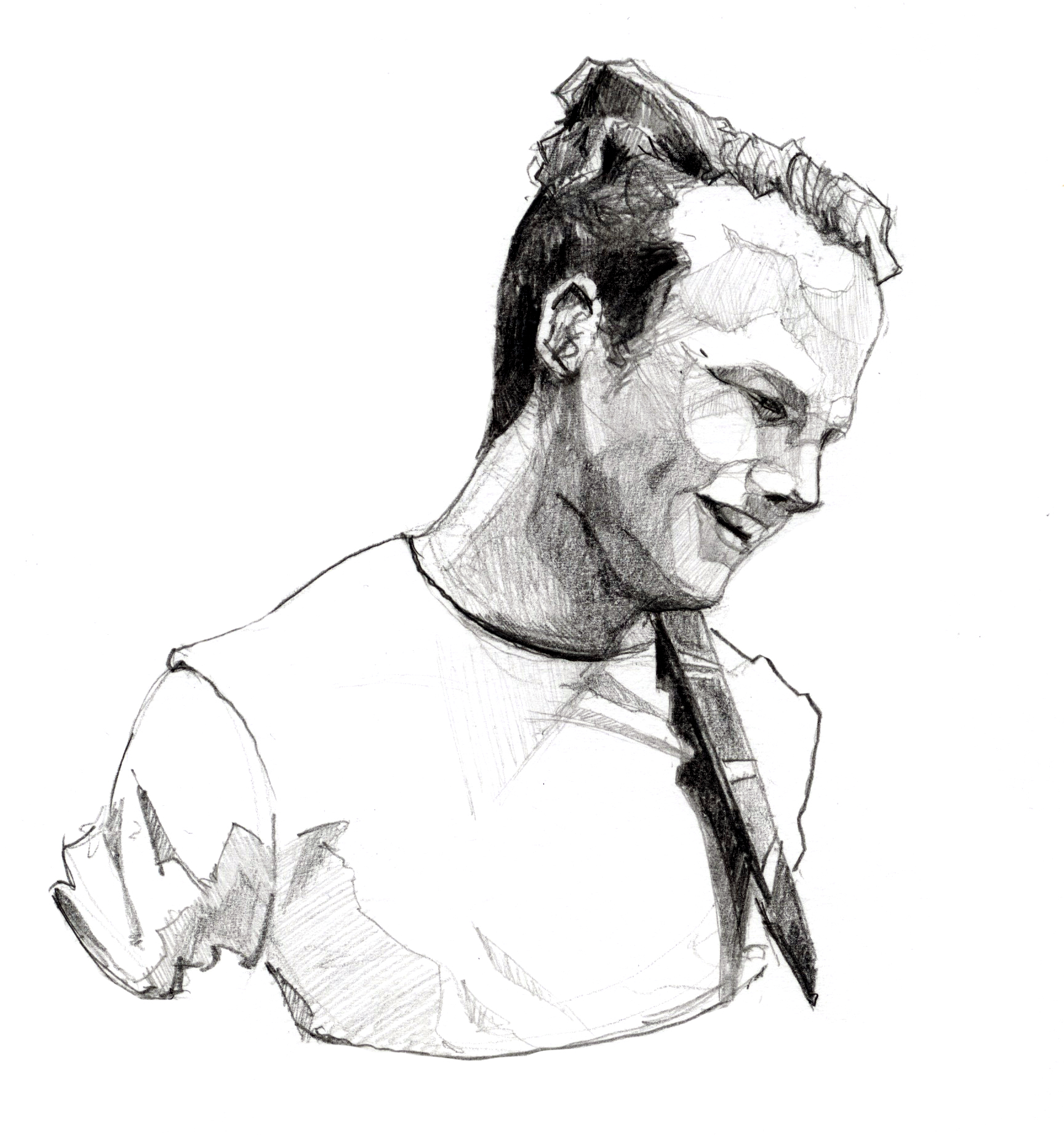
Recently, composer Max Vinetz ’18 has drawn inspiration for his music from his personal experiences: He has composed music in memory of a friend and after pondering a favorite melody by Brahms. He also wrote a piece inspired by packing up the books in his parents’ library to prepare for their move.
He hopes to write music that does not merely “happen and then fade away.” Instead, he aims to compose from experiences that are “personal and immediate.”
“I think that if I write music that is genuine … and honest, people will want to listen,” Vinetz said.
Vinetz finds dishonesty in styles of composition that rely on academic models — what he called “glossed up” music — and he avoids writing music that fits a traditional expectation of how pieces should sound.
Currently, he is working on several pieces, including a violin concerto for violinist Emily Switzer MUS ’19 to perform with the Yale Undergraduate Chamber Orchestra in the spring. Vinetz described YUCO, a student ensemble he organized with Ian Niederhoffer ’19, as a “pop-up orchestra” of undergraduate musicians, whose goal is to share a less-performed repertoire and student compositions, with the Yale community.
Unlike the standard violin concerto, for soloist and orchestra, Vinetz is composing this piece for 4-channel electronics and an amplified violin. The work will feature a prerecorded layered track of Switzer’s playing accompanying the orchestra and the soloist performing live.
Niederhoffer, who has previously conducted Vinetz’s music, will lead YUCO in the premiere of this violin concerto. Niederhoffer said he has observed a shift in Vinetz’s musical style toward creating “incredibly lush textures using a whole slew of string techniques.”
Early last year, the Yale Symphony Orchestra commissioned a work by Vinetz for the ensemble to perform in November 2017. Because YSO had not commissioned music from an undergraduate composer in decades, Vinetz felt immense pressure to succeed. As he began writing, he said, he drew inspiration from the compositional process of a French contemporary composer he studied over the summer in Paris. Eventually, Vinetz produced a piece entitled “Unraveling,” which he described as “opaque at first, then slowly opening up to explore the color inside of it.”
Vinetz began his musical journey with the piano at around the age of five. When he became frustrated with practicing, he said, he would “end up fumbling at the keyboard” and making up his own melodies. He said he was “improvising before [he] even knew what it was.”
Vinetz’s musical roots are not solely classical. During his teenage years, he focused on electric bass and guitar — the first instrument for which he wrote and performed his own music. When he was 13, he joined a band — he described the style as “post-hardcore” — that performed in his area. Writing songs for the band marked the start of Vinetz’s composing career. He also played professionally bass in jazz bands.
Through his high school’s after-school conservatory program, Vinetz was able to compose a short jingle for a TEDx event, which he describes as his first “real” composition. After that opportunity, he began writing more.
“But these pieces I was writing in high school were all trash,” Vinetz said. “There was no informed counterpoint, and I’d never had a composition lesson.”
Though he attended an arts school, he added, the curriculum did not include much discussion of contemporary compositions.
“I didn’t know much about the real new music and new art world,” Vinetz said.
When applying to college, Vinetz sought an institution where he could pursue academics while continuing to compose. Yale appealed to him because the University values the arts, including music, he said.
Vinetz originally planned to double major in music and molecular biophysics and biochemistry, and to follow the pre-med track. But after he became disillusioned with the pre-med climate during his first year at Yale, Vinetz decided to focus on music.
“A switch clicked in my brain. I said to myself, ‘don’t do something you think you should do if it isn’t you,’” Vinetz said.
Although he had been told to pursue a career in medicine, Vinetz decided to eschew this “conventional vision of success” in favor of his passion for music.
Vinetz also co-founded the New Music Cooperative at Yale College. During his first year at Yale, he had trouble finding musicians to play his compositions, and felt uninspired by the lack of opportunities to share his music. He reached out to other composers, and together, they created the cooperative, which they hoped would serve as a community for composers on campus to interact and discuss their compositions, and host performances of their work.
Vinetz believes that the New Music Cooperative has “in some way marginally affected the creative climate on campus.”
Currently, he is working on a piece that members of the Yale Voxtet and the Yale Schola Cantorum will sing in a concert of new music organized by Vinetz and Jacob Gelber MUS ’19, a choral conducting student in the Institute of Sacred Music and the School of Music.
The pair met this past summer at a music festival in Knoxville, TN, where Gelber conducted the premiere of a piece Vinetz wrote for a large ensemble and a soprano. Gelber described Vinetz’s music as “complexly layered but instantly emotionally palettable.”
Vinetz is “someone who follows through on his ideas and blends an extreme tenderness and sensitivity with a real structural sense of music making,” Gelber added.
After his undergraduate years at Yale, Vinetz plans to study composition at a music graduate school.
Julia Carabatsos | julia.carabatsos@yale.edu







